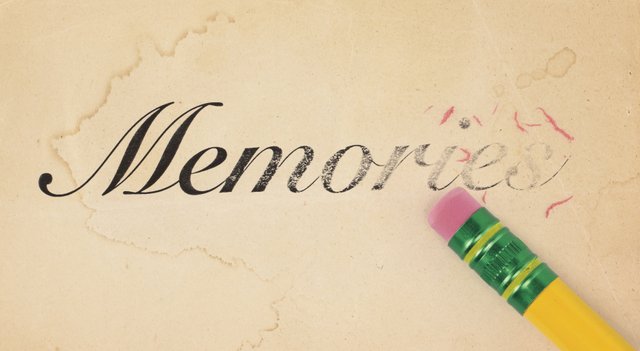In a Grief-less World...
Loss affects us. Whether small or large, it can make huge differences in our lives, it's powerful enough to change the course of one's life, as unlikely as that may sound. But the thing to understand is that loss is universal. It doesn't affect any one individual or one group of individuals. It affects everyone. There is no person alive or dead that wasn't dealt a cruel hand by fate, who didn't lose something meaningful. Universe is unfair like that.

After loss, comes grief. It is perfectly okay to grieve as it's a natural process. In fact, it's always good to grief because otherwise moving on becomes very difficult.
Everyone grieves differently. It is important to grieve but it is also important to move on. If we let the past govern our lives, we can never move forward and discover what the future holds for us. I have known many people in my lifetime that have been consumed by grief, mourning and loss. They slowly devolve into husks of their former selves, emotionless and lifeless. I realize that loss is difficult and life-changing, in fact I am no stranger to it. But to stop trying to press onward and stay in the past, is synonymous with... death.
I believe that it all comes down to this one thing: meaning. Take a moment and reflect on this. What gives your life meaning? Is it money, is it something, or is it someone? What do you imagine your life would be like without them?
Loss isn't easy. And the loss of meaning can demotivate you so much that you just might give up on life. I mean, what is there anymore to live for? You cannot get out of bed in the morning. Where once you saw light, now you see never-ending darkness that slowly consumes you, leaving behind only a husk.

According to the Kübler-Ross model of grief, there are five stages of grief:
Denial
"This isn't happening, this isn't real." This is the first thought that comes to mind when someone experiences a traumatic event. And it makes sense. Everything was fine a minute ago, we are having the best time we've ever had. And suddenly that happiest dream is burst wide open by a sharp needle, and you're in for a rude awakening.
Anger
"Why me?" Anger is very common during the process of grief. "What did I ever do to deserve this?" In order to understand what is happening people turn to solutions, they turn to religions, holy men, books and whatnot. Blame is a big part of this stage.
Bargaining
"What if..." People think of scenarios where they could've prevented their loss from happening. It slowly becomes an obsession as they keep dwelling on different scenarios where they could've been happy.
Depression
For many people, this is the hardest stage to overcome as grief enters our life on a very deep level. It becomes embedded deep into our core and soon we lose motivation. We feel empty and unable to move on.
Acceptance
This is the final stage, in which one realizes that they have to make their peace with their loss, because it happened. Now it's important to move on because this is the permanent reality in which we have to live now.
Let's imagine a world without grief. What if you could erase your memories?

What if you could erase all the time you spent with someone, so you never knew them? So that you wouldn't have had to lose them, so you wouldn't have go through that terrible experience?
Memory erasure is scientifically possible, but not quite there yet. You could "delete" your memories from a long time ago but selective memory erasure hasn't been perfected yet and I don't think they'll be starting human trials any time soon, solely due
to the risk it contains. Although, memory erasure has been done in snails.
Memory erasure is a controversial topic. It is also a big part of the film Eternal Sunshine of the Spotless Mind, which is one of the greatest films of the past decade.
So what would a grief-less world be like? I for one refuse to believe that it would be anything close to happy, I imagine it being a very gray world: emotionless and lifeless. Grief not only helps us move forward but it helps us adjust, it helps us adapt. It helps us live on, and appreciate life. Without it, I don't think we'd be able to live after a traumatic experience.
I think a world without grief sounds like it would be awful. I can't imagine not caring enough where I don't feel grief or having my memories erased so I don't remember. When I think about erasing all of the happy memories of have when someone it makes me feel empty inside.
Exactly! Although I knew some people that were consumed by it, I'd rather live in a world with grief than live in a world without it.
Infinitive, great share. Lost my first wife in 2012. This article describes many of the emotions and processes that my daughters and I went through. I have been watching Sheryl(Cheryl) Sandburg go though a public grief journey after losing her husband. Looking forward to your next post.
It has been time since i didn't read about grief and the phases, thank you.
Great article :)
Whatever may be the loss that cannot be recovered we should accept it. So acceptance is the best way to overcome grief. We cannot stop to grieve forever we should carry on our life. Thanks for sharing.
The section about deleting memories reminded me of an episode of Black Mirror (which, I think you'd love if you haven't seen it yet).
Some thought-provoking ideas here. Thanks for sharing.
Good post